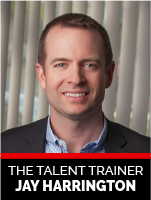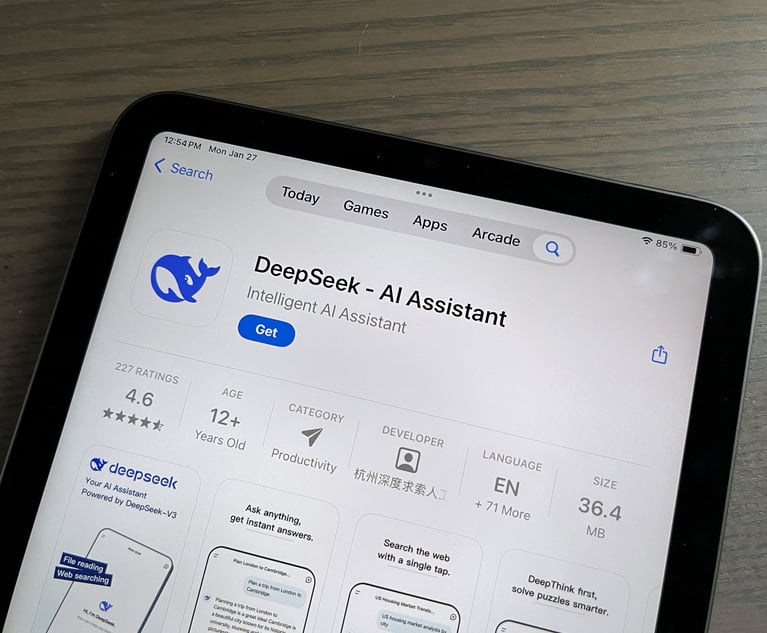How to Overcome Imposter Syndrome as a Young Lawyer
At times you'll feel like you don't belong, like you don't know what you're doing. But keep the faith.
February 20, 2020 at 12:21 PM
6 minute read
 (Photo: Shutterstock)
(Photo: Shutterstock)
Athletes often observe that each time they advance to the next level of competition, the game "speeds up." The leap from high school to college ball is a significant one. Players are bigger, faster, stronger, and the game moves at a more rapid pace. The transition from college to pro is even more drastic, as things start to move at a dizzying speed.
As a young lawyer who is now fully engaged in the practice of law, you've just turned pro. While there were smart, insightful people in your law school class, this is an entirely different level. The competitive academic playing field is nothing compared to the professional one you're now playing on. At times you'll feel like you don't belong, like you don't know what you're doing. But keep the faith. You've almost certainly experienced similar discomfort before, and you overcame it. And you can do it again.
What Causes Imposter Syndrome?
You'll soon hear, if you haven't heard already, a voice inside your head that tells you that you're not good enough. It typically creeps in as soon as you step out of your comfort zone—when you take on a difficult assignment or begin preparing for your first oral argument. The voice whispers warnings that you don't belong, that you don't deserve it and that you're a fraud.
At the same time that the voice cuts you down, it also builds others up. It tells you that those around you are smarter, better and more talented than you are and that they have it all figured out. If you listen to the voice, you end up staying safely within your comfort zone and stop taking risks. Your forward momentum stalls. Your confidence wanes. You start to question your judgment. When the voice gets really loud, it engenders fear that is paralyzing.
 Psychologists Pauline Clance and Suzanne Imes call this type of fear "imposter syndrome." They describe it as a feeling of "phoniness in people who [fear they] are not intelligent, capable or creative despite evidence of high achievement." They "live in fear of being 'found out' or exposed as frauds."
Psychologists Pauline Clance and Suzanne Imes call this type of fear "imposter syndrome." They describe it as a feeling of "phoniness in people who [fear they] are not intelligent, capable or creative despite evidence of high achievement." They "live in fear of being 'found out' or exposed as frauds."
If you've ever stepped in front of a podium to address an audience or been promoted to a job that you're not sure you can handle, then you've likely felt like an imposter. After I wrote my first book, I had to constantly push back doubts about why anyone would be interested in reading what I had to say. As a young lawyer, I frequently felt like I was in over my head from the trial-by-fire experience.
Feelings of inadequacy or incompetence don't just affect people in a professional setting. We all feel like imposters from time to time in our personal lives as well. For example, virtually all first-time parents question why anyone would consider them qualified to take their child home from the hospital.
Ways to Overcome Imposter Syndrome
One of the best ways to overcome imposter syndrome and exhibit more resilience in the face of challenges is to cultivate a "growth mindset" rather than a "fixed mindset"—a distinction popularized by the work of psychologist Carol Dweck.
Dweck explains that those who have "fixed mindsets" believe that their character, intelligence and creative ability are static and immutable and that they have little control over outcomes in their lives as a result. Put another way, and to contextualize this concept for lawyers, associates with fixed mindsets who don't consider themselves to be good litigators now, do not believe they can become effective ones in the future.
A "growth mindset," on the other hand, is one that is motivated by challenges and sees failure as an opportunity to learn and grow. Those with growth mindsets believe they can get better through experience.
As a young lawyer, you'll be given assignments that seem extremely daunting at first—legal research with no clear answer, a brief you perceive as impossibly complex. When this happens, you'll likely feel like an imposter. You'll doubt your ability to get the job done. But you will get it done. It may not be perfect, but you'll learn from the experience, and you'll use what you learned to do a better job next time. And so on. A growth mindset allows you to act in the moment and not be paralyzed by fear. It's the key to understanding that you're someone who is capable of consistent growth, and not merely an imposter who's bound to be found out for their shortcomings.
Another important step in overcoming imposter syndrome is realizing that we are all imposters. No one knows what he or she is doing most of the time. For people who routinely step out of their comfort zones, uncertainty is a constant. This is true for young lawyers as well as titans of industry. In an interview with The New York Times, Starbucks CEO Howard Schultz said: "Very few people, whether you've been in that job before or not, get into the seat and believe today that they are now qualified to be the CEO. They're not going to tell you that, but it's true."
So peer down the halls of your office. Look into the eyes of your colleagues. Talk to people. Almost everyone feels like an imposter to some extent. As screenwriter William Goldman once said: "Nobody knows anything." If you can come to grips with the fact that those around you are feeling the same sense of unease and anxiety that you are, then pushing through the uncertainty becomes easier. Instead of succumbing to self doubt, embrace it.
Take on new challenges. Remain confident. Seek help when you need it. Learn from your mistakes. There's no other way to exhibit resilience and overcome imposter syndrome as a lawyer. All successful people have to "fake it 'til they make it" at some point, so keep moving forward. Like Howard Schultz explained, you'll probably never stop doubting yourself, so you might as well get used to the feeling and use it as fuel to perform at your highest potential.
Jay Harrington is an executive coach and trainer for lawyers and law firms and is the author of the new book, "The Essential Associate: Step Up, Stand Out, and Rise to the Top as a Young Lawyer." He is the owner of Harrington Communications and is associated with Simier Partners. Contact him at [email protected].
This content has been archived. It is available through our partners, LexisNexis® and Bloomberg Law.
To view this content, please continue to their sites.
Not a Lexis Subscriber?
Subscribe Now
Not a Bloomberg Law Subscriber?
Subscribe Now
NOT FOR REPRINT
© 2025 ALM Global, LLC, All Rights Reserved. Request academic re-use from www.copyright.com. All other uses, submit a request to [email protected]. For more information visit Asset & Logo Licensing.
You Might Like
View All
Eighth Circuit Determines No Standing for Website User Concerned With Privacy Who Challenged Session-Replay Technology
7 minute read
The Time Is Now for Employers to Assess Risk of Employees’ Use of DeepSeek
4 minute read
Avoiding the Great Gen AI Wrecking Ball: Ignore AI’s Transformative Power at Your Own Risk
6 minute read
Trending Stories
Who Got The Work
J. Brugh Lower of Gibbons has entered an appearance for industrial equipment supplier Devco Corporation in a pending trademark infringement lawsuit. The suit, accusing the defendant of selling knock-off Graco products, was filed Dec. 18 in New Jersey District Court by Rivkin Radler on behalf of Graco Inc. and Graco Minnesota. The case, assigned to U.S. District Judge Zahid N. Quraishi, is 3:24-cv-11294, Graco Inc. et al v. Devco Corporation.
Who Got The Work
Rebecca Maller-Stein and Kent A. Yalowitz of Arnold & Porter Kaye Scholer have entered their appearances for Hanaco Venture Capital and its executives, Lior Prosor and David Frankel, in a pending securities lawsuit. The action, filed on Dec. 24 in New York Southern District Court by Zell, Aron & Co. on behalf of Goldeneye Advisors, accuses the defendants of negligently and fraudulently managing the plaintiff's $1 million investment. The case, assigned to U.S. District Judge Vernon S. Broderick, is 1:24-cv-09918, Goldeneye Advisors, LLC v. Hanaco Venture Capital, Ltd. et al.
Who Got The Work
Attorneys from A&O Shearman has stepped in as defense counsel for Toronto-Dominion Bank and other defendants in a pending securities class action. The suit, filed Dec. 11 in New York Southern District Court by Bleichmar Fonti & Auld, accuses the defendants of concealing the bank's 'pervasive' deficiencies in regards to its compliance with the Bank Secrecy Act and the quality of its anti-money laundering controls. The case, assigned to U.S. District Judge Arun Subramanian, is 1:24-cv-09445, Gonzalez v. The Toronto-Dominion Bank et al.
Who Got The Work
Crown Castle International, a Pennsylvania company providing shared communications infrastructure, has turned to Luke D. Wolf of Gordon Rees Scully Mansukhani to fend off a pending breach-of-contract lawsuit. The court action, filed Nov. 25 in Michigan Eastern District Court by Hooper Hathaway PC on behalf of The Town Residences LLC, accuses Crown Castle of failing to transfer approximately $30,000 in utility payments from T-Mobile in breach of a roof-top lease and assignment agreement. The case, assigned to U.S. District Judge Susan K. Declercq, is 2:24-cv-13131, The Town Residences LLC v. T-Mobile US, Inc. et al.
Who Got The Work
Wilfred P. Coronato and Daniel M. Schwartz of McCarter & English have stepped in as defense counsel to Electrolux Home Products Inc. in a pending product liability lawsuit. The court action, filed Nov. 26 in New York Eastern District Court by Poulos Lopiccolo PC and Nagel Rice LLP on behalf of David Stern, alleges that the defendant's refrigerators’ drawers and shelving repeatedly break and fall apart within months after purchase. The case, assigned to U.S. District Judge Joan M. Azrack, is 2:24-cv-08204, Stern v. Electrolux Home Products, Inc.
Featured Firms
Law Offices of Gary Martin Hays & Associates, P.C.
(470) 294-1674
Law Offices of Mark E. Salomone
(857) 444-6468
Smith & Hassler
(713) 739-1250








